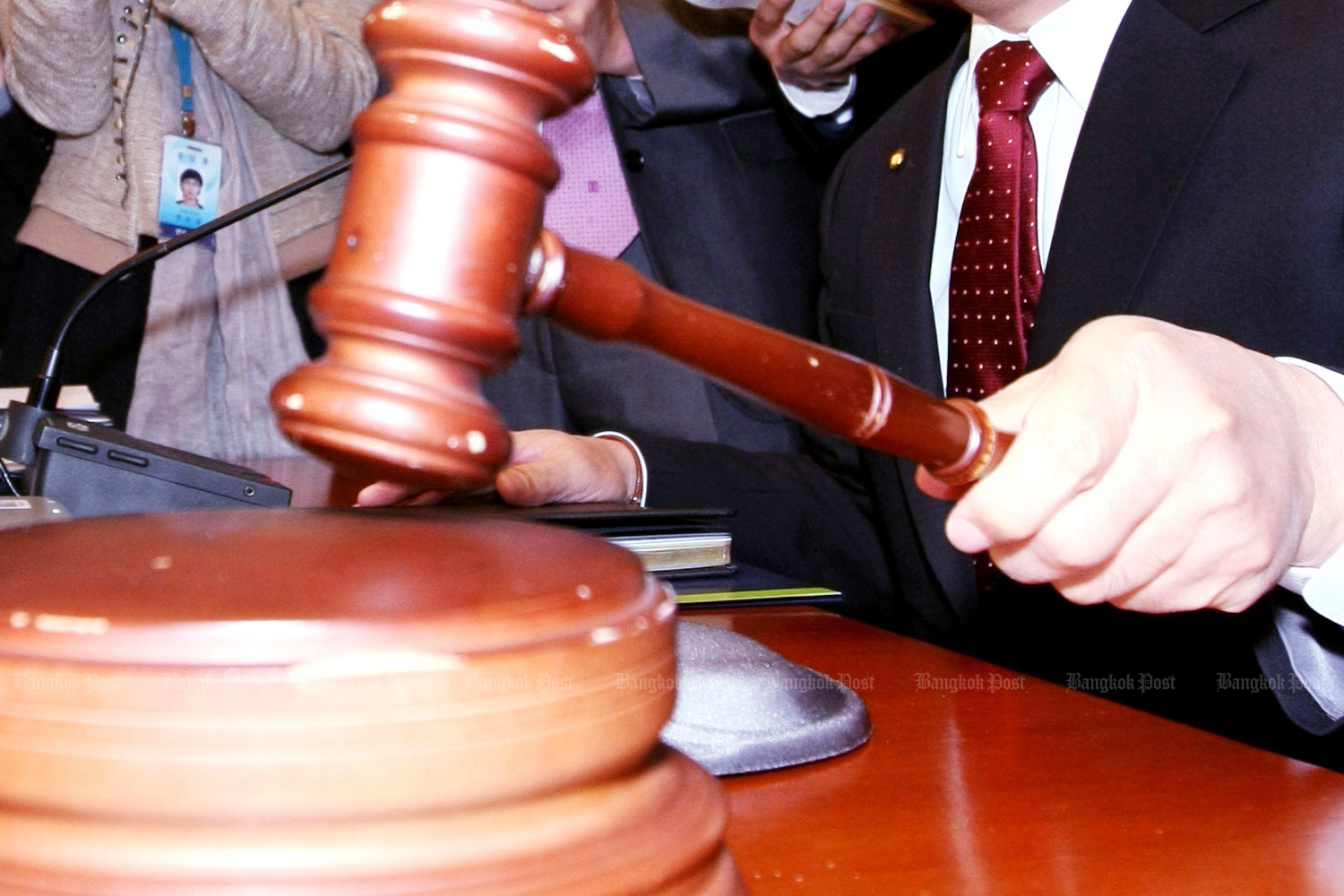
The Criminal Court's decision to jail the former director of Kaeng Krachan National Park should have made Pinnapa Prueksapan, the widow of missing activist Porlajee "Billy" Rakchongcharoen, feel vindicated after years spent seeking justice for her husband.
Chaiwat Limlikit-aksorn was sentenced yesterday to three years in jail in connection with the disappearance of Porlajee over nine years ago.
But Ms Pinnapa appeared forlorn at seeing Chaiwat dodge charges of premeditated murder and concealing a corpse, which would have put him behind bars for much longer.
Now, both parties are preparing to appeal, with Chaiwat vowing to take the fight to the Supreme Court after he was granted bail.
Chaiwat, who serves as chief of the National Park Office (NPO), operating under the Department of National Parks, Wildlife and Plant Conservation (DNP), was found guilty of violating Section 157 of the Criminal Code by failing to record the arrest of Porlajee and not handing him over to the police.
Mr Chaiwat and four park staff arrested Porlajee in early April 2014 for collecting wild honey in the national park.
Prior to that, the two men had been involved in a legal dispute. Mr Chaiwat released the activist on April 17, but he was never seen or heard from again.
Porlajee is one of 76 suspected victims of enforced disappearance in the country. But Ms Pinnapa's relentless pursuit of justice has kept his case firmly on the radar.
The media spotlight again shone on his case following the discovery of new evidence in 2019 when the Department of Special Investigation (DSI) retrieved pieces of a burnt human skull in an oil drum under a bridge in Kaeng Krachan.
The DSI's forensic experts used mitochondrial DNA testing to confirm that the skull fragments likely belonged to Porlajee by matching them with the DNA of one of his maternal relatives.
Such forensic tracing was unprecedented in Thailand and has never been used as evidence in court. But the Criminal Court's ruling states that the judges were not completely convinced the pieces of skull belonged to Porlajee.
Public prosecutors earlier rejected the pieces of bone as evidence, arguing that forensic technology had never been used in a court trial before.
Yesterday's verdict reflects the insurmountable burden of finding proof for family members and relatives of victims of enforced disappearance.
Courts in many countries, including Thailand, still lean on traditional criminal evidence, such as the discovery of the victim's corpse or pieces of flesh to be convinced.
The uncertainty created by the absence of the body of the victim is one of the prime difficulties for any human rights court when determining the admissibility of evidence.
Yet this high burden of proof makes it almost impossible to get convictions in cases of enforced abduction.
Abductors in such cases generally opt to kidnap but not kill their victims because they do not want to leave any evidence behind. The big question for Porlajee, and perhaps the rest of society, is what kind of evidence is needed exactly.
The onus will fall on the Thai justice system to open itself to new forensic evidence to keep up with such heinous crimes.
